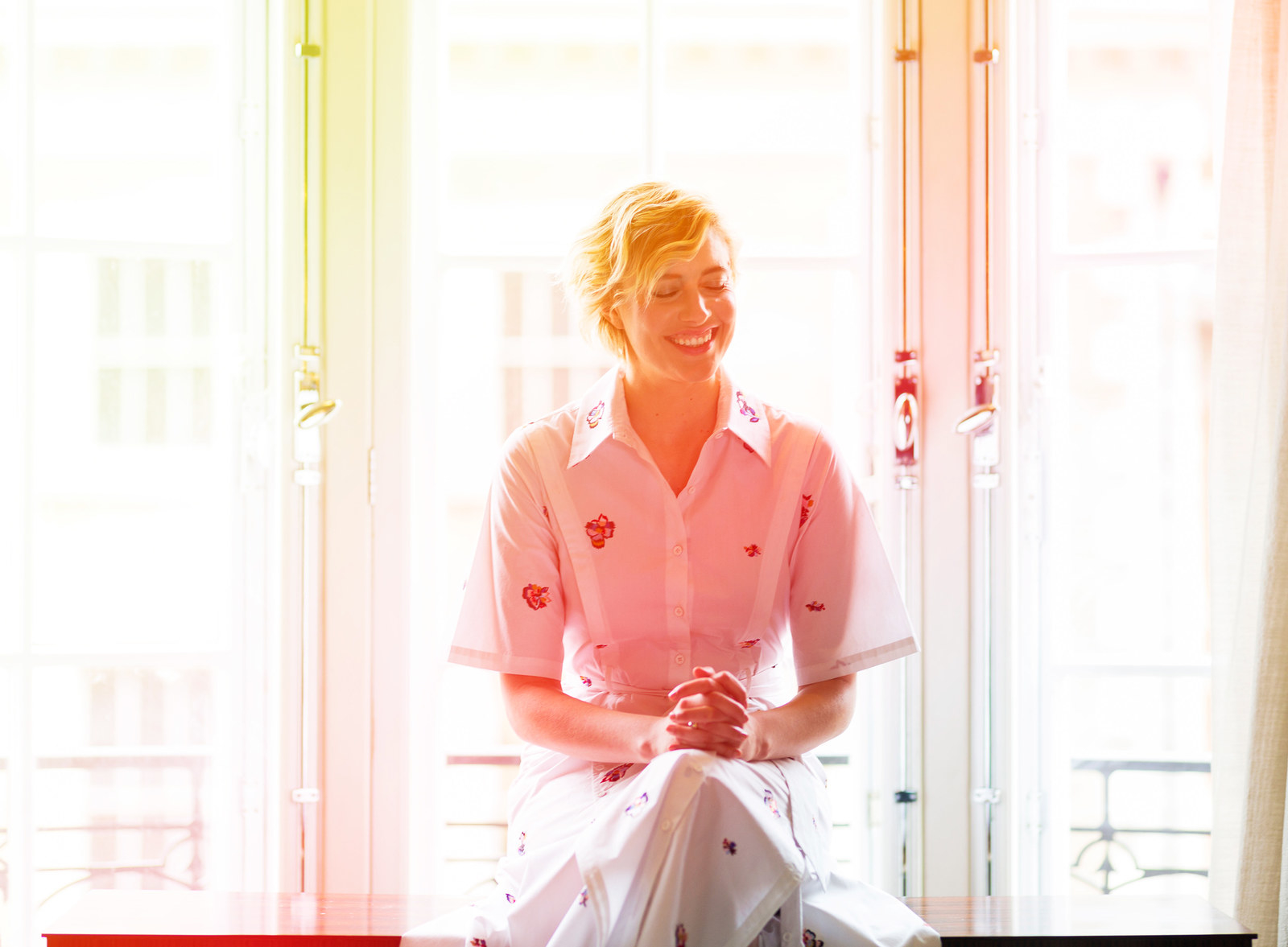Greta Gerwig's Lady Bird is a film that reflects the complexities of the characters whose story it tells. As everyone seems to have said (because it's true), Lady Bird is somehow both universally relatable and acutely specific; it's a bout of hysterical laughter followed by a warm and familiar hug followed by a punch in the gut, and above all, it's a reminder to call your mother.
Since its premiere at the Telluride Film Festival in September last year, Lady Bird – along with Gerwig and her lead actors, Saoirse Ronan and Laurie Metcalf – has gone from strength to strength. In December, Gerwig was named 2017's Best Director by the National Board of Review. In January, she and her cast took to the stage to accept the Golden Globe for Best Motion Picture, Musical or Comedy. Only a couple of weeks later, Gerwig became the fifth woman ever to be nominated for Best Director in the Academy Awards' 90-year history, and her film also collected nominations for Best Original Screenplay, Best Actress (for Ronan – her third Oscar nomination at age 23), Best Supporting Actress (for Metcalf), and Best Picture.
She may have been promoting the film since August, but when I meet with Greta Gerwig in mid-February, I get a sense that there's still nothing she'd rather talk about than Lady Bird. She tells me how her solo directorial debut came about, how Lady Bird got her name, and why she isn't your typical – meaning, of course, male – director.

I haven’t met a person who’s seen Lady Bird who hasn’t loved it. How has that reaction been for you?
Greta Gerwig: It’s been extraordinary. Of course when you make a movie you hope it connects with people, but at the same time you just don’t know what things will feel true to someone. Honestly, especially with women, when they say, “Oh, I know exactly what that is…” It’s nice to feel that often what this mother-daughter relationship is is quite universal. It’s not just about these people. Everyone can relate to it.
I also like when people come up to me and they tell me stories about their lives. They’re like, “I have to tell you about the time that my daughter did this thing!” It’s great. It’s really lovely.
How did it all start? Where did the idea for Lady Bird come from, and how long were you working on it?
GG: I’d written two other films with Noah Baumbach, which he directed – Frances Ha and Mistress America – and it was some time after we finished shooting Mistress America that I started writing this. I knew I wanted the mother-daughter to be the centre of it, but I didn’t know how old the relationship was going to be, or what it was. I also knew I wanted to do a movie that took place in Sacramento. So I just kind of started writing into that hunch, which is generally how I work. I don’t know what a thing is going to be before I finish writing it.
I listen to people on the subway in New York all the time, because it’s just a good place to eavesdrop – coffee shops are good too, or just walking down the street – but I heard two teenage girls talking to each other, and one of them said to the other, “I wish I could live through something.” There was something so sincere about it. I knew exactly what she was talking about. I was like, “You are living through something! By the nature of you being alive, you are living through something!” But I knew what she meant. It was those moments I gathered, and then I started crafting something around that.
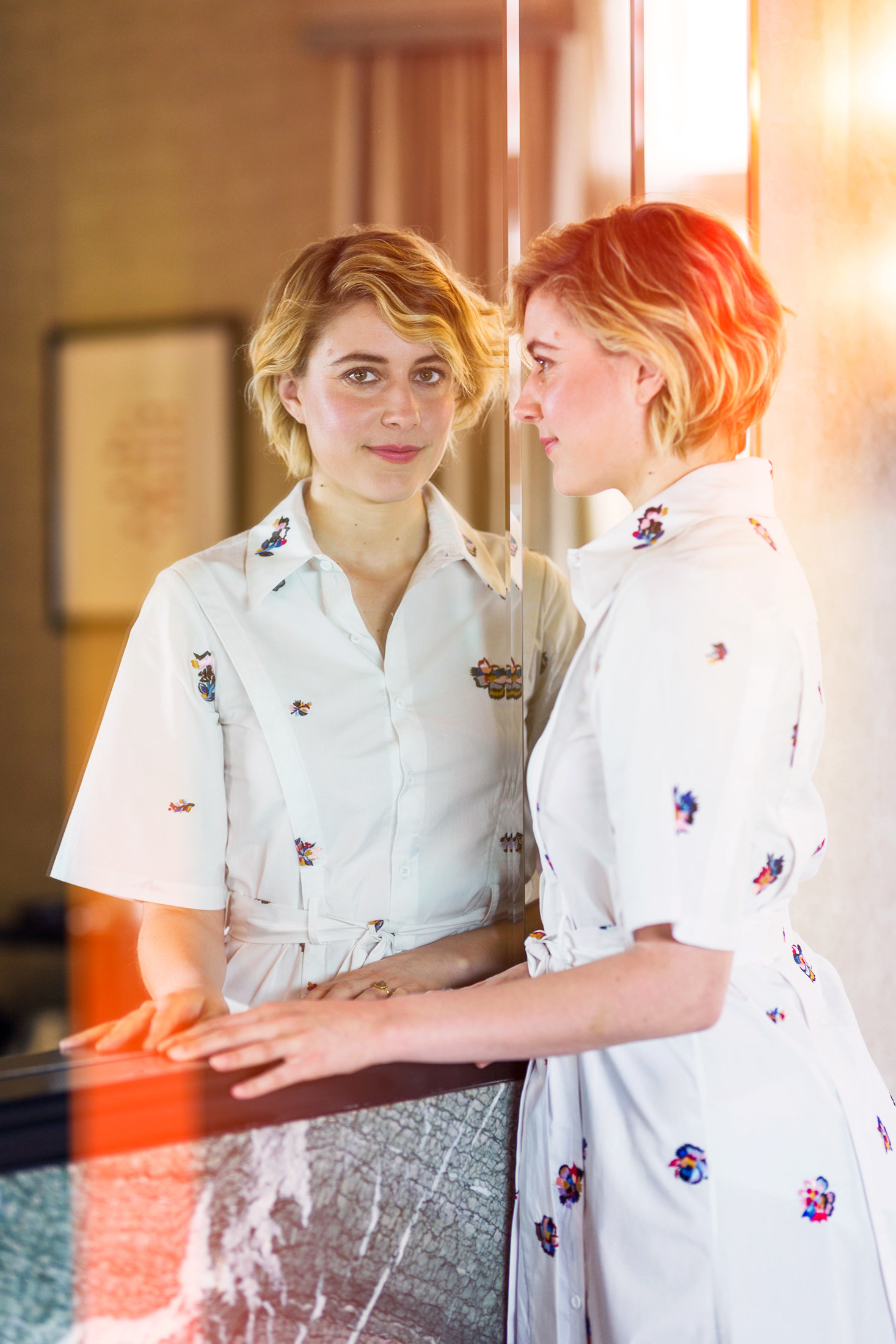
"There’s something to me about overwriting. It’s like a diamond: You’re compressing it to its most tiny, brilliant form"
The first time I saw the film was at a Q&A, and you said you ended up with an insanely long script when you first finished it. How did it change from that first draft to the finished product? Was there anything you ended up cutting that you really wanted to keep?
GG: I had a really big 350-page draft called Mothers and Daughters and I whittled it down to be about 120 pages, which is what we shot. But I like having too much material. In everything I’ve written, if I don’t end up cutting at least half of it, it’s not dense enough. There’s something to me about overwriting. It’s like a diamond: You’re compressing it to its most tiny, brilliant form.
There’s a lot of stuff I cut that I loved. I had characters of neighbours, people who lived in the neighbourhood – I loved them, but it was just too long. There was backstory with different characters, and extensions of the story. In a way, it allowed me to talk to my actors and explain more in-depth about these people, because I imagined their lives fully.
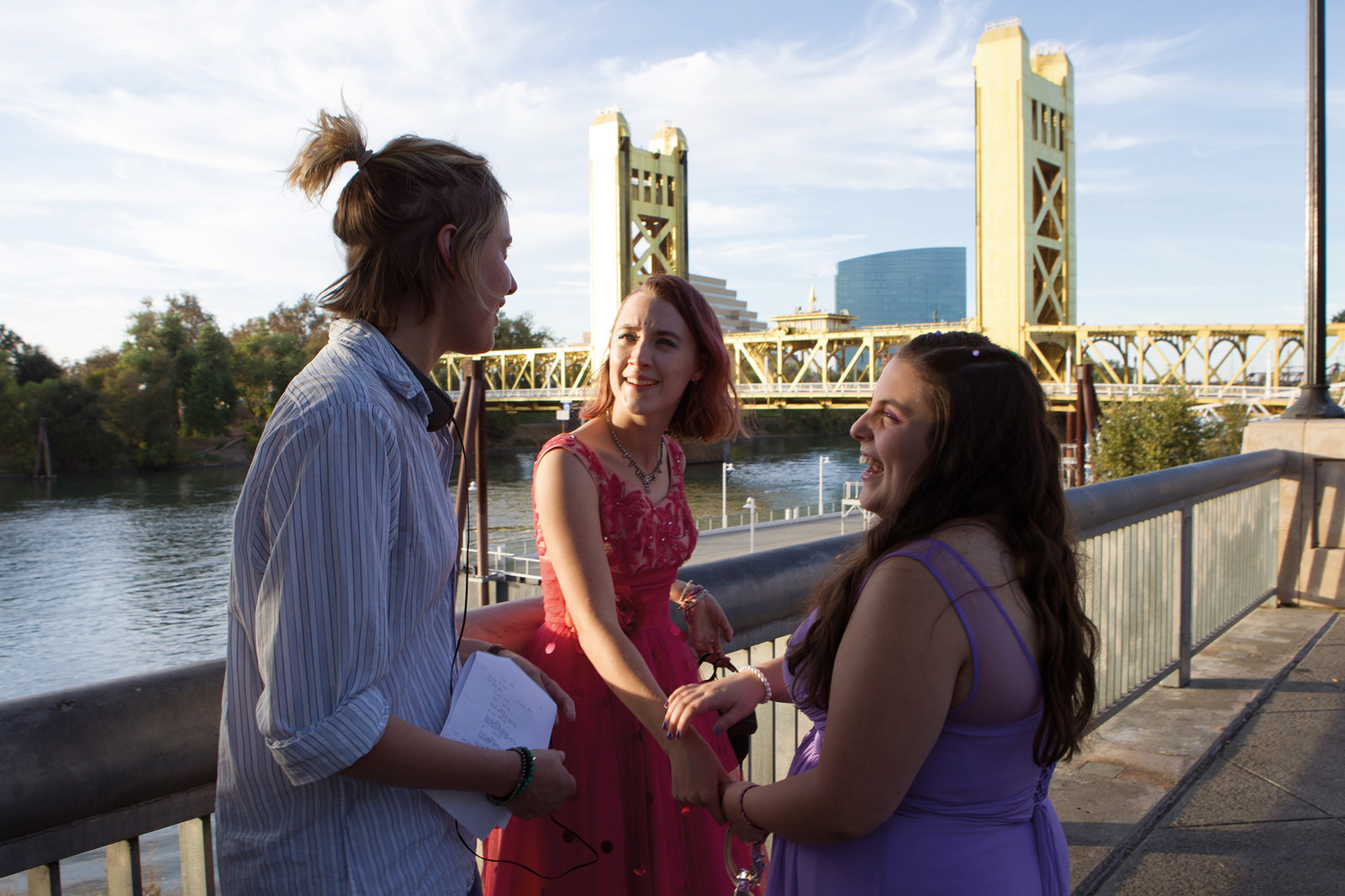
That’s one of the things I love so much about it. You so desperately want there to be someone to hate – but there isn’t anyone. Particularly, obviously, Kyle sucks as a person, but then you find out his dad is dying.
GG: That’s right – I didn’t want there to be any villain. Yes, Kyle is a jerk, but he’s in a lot of pain and he, like a lot of young men, just sort of shuts it off. I think sometimes when you’re in pain, you shut off all feelings instead of just the painful ones. You can’t pick and choose, so you’re just like, “I’m going to go into my hermetically sealed box and be a jerk from inside there.” But I wanted every character to be, in some way, doing the very best they can, and I was aided by these incredible actors.
Like you said earlier, the characters and relationships are so universally relatable, and yet the experiences you’re writing about are so specific to being a teenage girl in the early ’00s, going to an all-girls Catholic school, being from “the wrong side of the tracks”. What do you think is at the core of the story that makes it so accessible to everyone?
GG: Well, for me, the more specific you make something, the more universal it is. It seems to me that’s one of the rules of cinema. I always think about filmmakers who’ve made films about places that I’ve never been and times I’ve never been in, and how much I feel like they got it right, even though I don’t know what it is they got right.
I love the movie In the Mood for Love, but I was never in Hong Kong in the ’60s. I don’t know if that’s what it was actually like, but the vividness of how it’s done and the specificity of the apartments, and this noodle shop, and what they do, and how they pass each other in the hall… I think there’s something about it that just feels true because it’s about human experience and emotion. Those details that make it ostensibly seem like it would be far away from you are the things that make you feel like, “Oh, I know what this is.”
Obviously, the onscreen relationship between Saoirse and Laurie Metcalf is incredible, but I also love Tracy Letts as Lady Bird’s dad – this mediator between two women who are constantly at each other’s throats. In terms of the rehearsal process, how long did the actors have to develop those relationships?
GG: I cast Saoirse about a year before we started filming, so I was able to, over the course of the year without overwhelming her, just give her little bits of information about the character. I cast Beanie [Feldstein] pretty early, who played her best friend, Julie, and then Lucas [Hedges], and Laurie, I think, was the second person I cast. I was able to do these sort of mini rehearsals where I just got them together, and it was more about making them feel comfortable around each other. They could build a relationship from that time spent together, and they trusted each other.
Tracy Letts, who plays Lady Bird’s father, and Laurie Metcalf, who plays her mother – they’ve actually known each other for 30 years. They both work in the same theatre company in Chicago called Steppenwolf. They’d never actually acted together, but they’ve known each other for a really long time, so they were able to bring this reality to it just from being friends. Things like that were just lucky. I mean, I had chosen them separately [laughs], but I was so glad that they really knew each other.
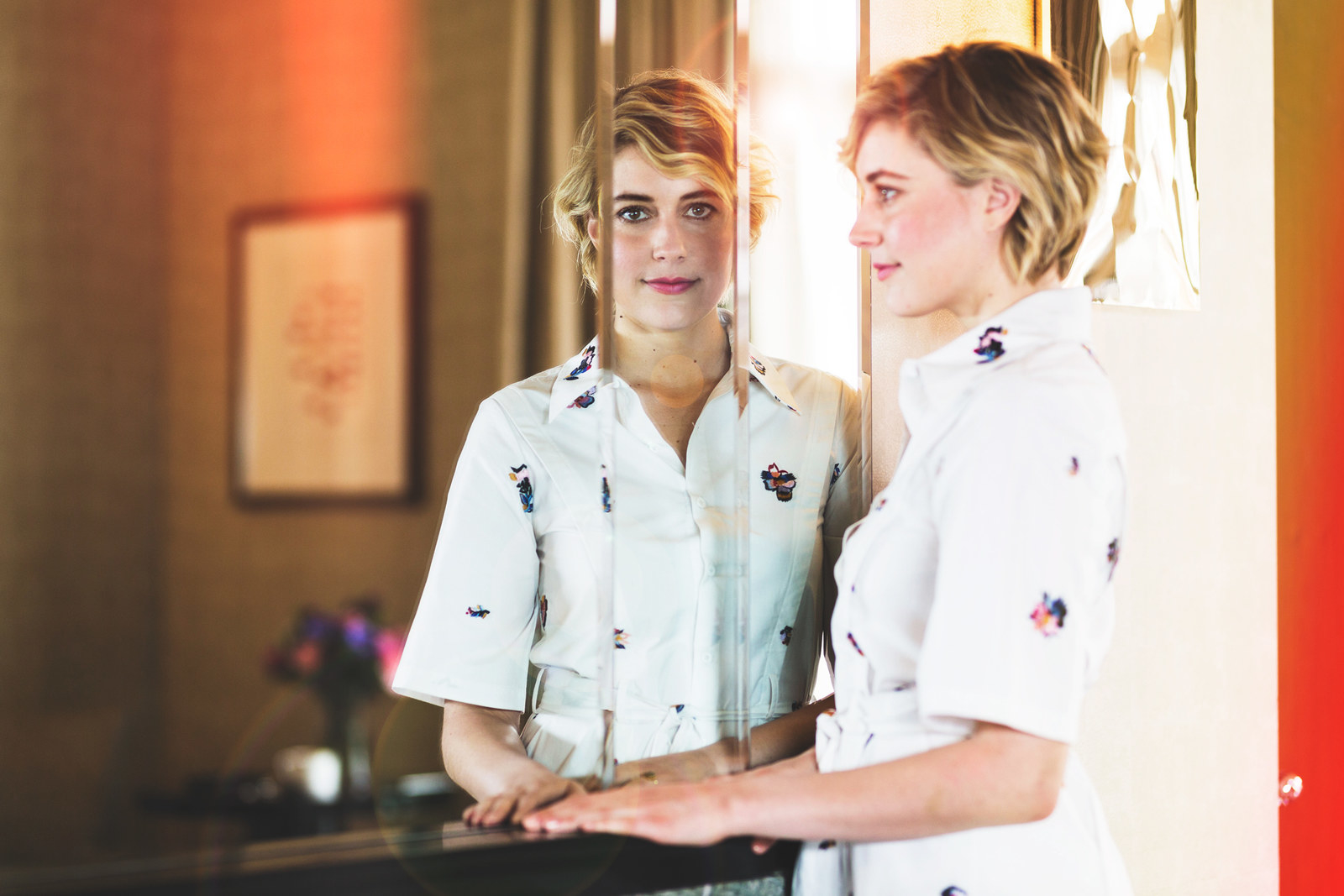
A question I personally really want to know the answer to – because it’s never explained: Is there a reason, in your mind, why she chose Lady Bird as a name?
GG: You know, the name Lady Bird is a truly mysterious thing for me. I was writing the script, and I couldn’t figure out the character for some reason. I put it aside, and then something… I wrote at the top of the page, “Why won’t you call me Lady Bird? You promised you would.” I have no idea where that came from at all. I genuinely don’t know, and then later I realised there’s a nursery rhyme – “ladybird, ladybird, fly away home.” I think that had somehow lodged itself in my head, and that’s what came out.
That’s, to me, part of the mystery of the creative process. Sometimes your unconscious knows more than you do. I remember writing it down, and thinking, “Who would do that? Who is this person who makes everyone call her Lady Bird, if that’s not her name?” I went through the normal feelings of self-doubt – I was like, is this the dumbest thing anyone’s ever written? But you kind of trust that if you’re excited about it, maybe it’s right.
"I went through the normal feelings of self-doubt – I was like, is this the dumbest thing anyone’s ever written?"
You haven’t had any formal training when it comes to directing – you didn’t go to film school. How has working as an actor with other directors influenced you?
GG: I’ve wanted to be a director for a pretty long time, but because I didn’t go to film school, I was pretty relentlessly educating myself while I was on film sets. I was writing and producing, and I’ve co-directed, and of course acting has been a huge part of it. So I’ve been paying attention the whole time, but also people have been incredibly generous with me. Directors have sat down and talked to me about how they’re lighting a scene, how they’re capturing the sound, why they’re putting a camera in a certain place. So much of what I’ve learned is this patchwork quilt of all the different ways a film can be made, so when I went about making this film, it was like I was stealing all the best ideas that I came across to put together the kind of set I wanted to run and the kind of film I wanted this to be.
There was this behind-the-scenes video that came out of you directing the scene in the rose garden, and it just looked like so much fun. Was it important to you to have that kind of atmosphere on set?
GG: Yeah! I mean, film sets are gruelling, the days are long, and everybody’s there to work hard, but for me it’s such a joy. To be with my cinematographer, my first assistant director, and then all my actors, watching them bring these characters to life... I didn’t see any reason not to create an atmosphere to reflect the joy I felt while at work. I’m just crazy about them. I love watching them work.
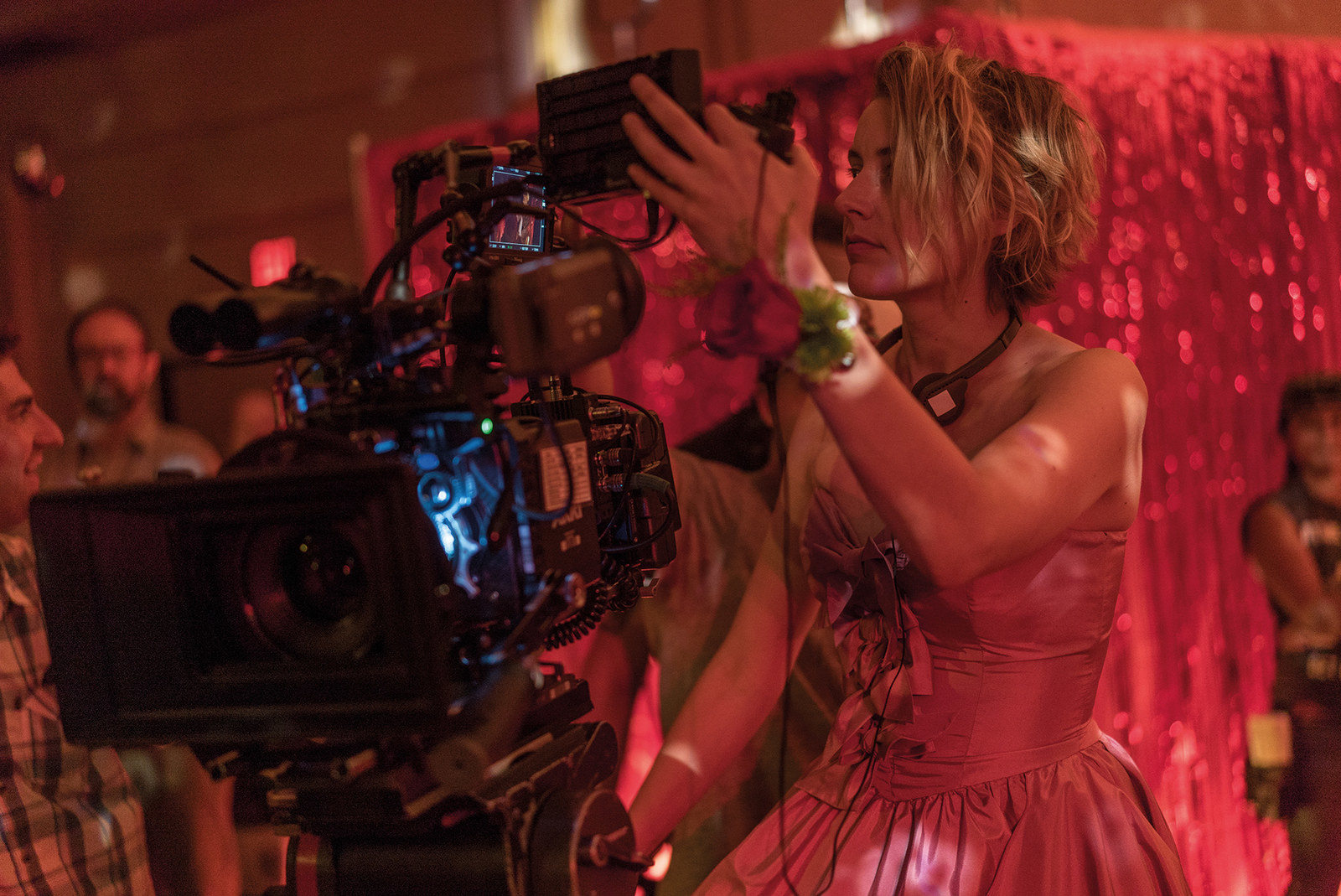
It was funny, when we were actually looking for set photographs of me directing, which they use for publicity, there was a whole email chain about, “Do we have any pictures of me looking very serious and, like, pointing at something?” Because that seemed like a “director” photo. But all the pictures of me are just… I never looked in that mould of, I guess, a male director. I’m always crying behind the camera, or laughing – I’m just in it. That was my experience of directing: just being totally emotionally tied to everyone on set.
Speaking of male directors, how does it feel to be the fifth woman ever to be Oscar-nominated, and for your first big project?
GG: Oh, it’s unbelievable. I’m so humbled, I’m so grateful. I loved making this movie – like I said before, I’ve wanted to be a filmmaker for a very long time, so the fact that it’s been embraced like this has meant the world to me.
I think what’s amazing about this year and this moment is how the numbers of female filmmakers are shifting and are going to shift. It’s been such a huge year, between Patty Jenkins, who directed Wonder Woman, Sofia Coppola with The Beguiled, Dee Rees with Mudbound, and coming up in a few weeks, Ava DuVernay with A Wrinkle in Time. It’s really changing before our eyes, and it’s time. It’s past time. It’s past time for that to happen, but I’m so lucky to be part of that conversation.
When I get to do Q&As and a lot of younger women – not even just them, but people my age and older – come up to me and say, “I want to make my first film...” There’s a feeling that that can happen now in a way I don’t know it felt like 1o years ago. They have so many examples to be excited about.
Kind of speaking to that, do you have any advice for young women who want to get into filmmaking in particular?
GG: Whether you’re a young woman or a young man, I would say the same thing, which is to try to be around it as much as you can. Try and get hired in any job you can just being close to set, because that will give you an idea of how it’s all done. A good place to start is PA jobs, stuff like that.
Something I see is possible now, because of technology, is to start making your own stuff, and use the tools you have around you. If you have a phone that has the ability to capture video – you know, Sean Baker, who made The Florida Project, which is so great, his film Tangerine was shot entirely on an iPhone. And it’s beautiful. Tools are now more available, and it’s a way that you can start experimenting with very little cost.
OK, last question: What is your favourite woman-directed film?
GG: My favourite?! Can I choose, like, five?
Sure.
GG: Jeanne Dielman by Chantal Akerman, Beau Travail by Claire Denis, Clueless by Amy Heckerling… Oh god, now I can only pick two more. Cleo from 5 to 7 by Agnès Varda. Who’s in the fifth slot?! I can’t… Maybe Orlando by Sally Potter.
Nice.
GG: I don’t know, there’s so many. When I started, I believed all playwrights were men, and I believed all directors were men. I actually had a teacher put a stack of plays written by women in front of me, because someone suggested I take a playwriting class, and I actually said, “But playwrights are men.” They were like, “What are you talking about?” So it's been really nice [to see so many successful female filmmakers]. Visibility of female filmmakers is something that’s really important to me.
